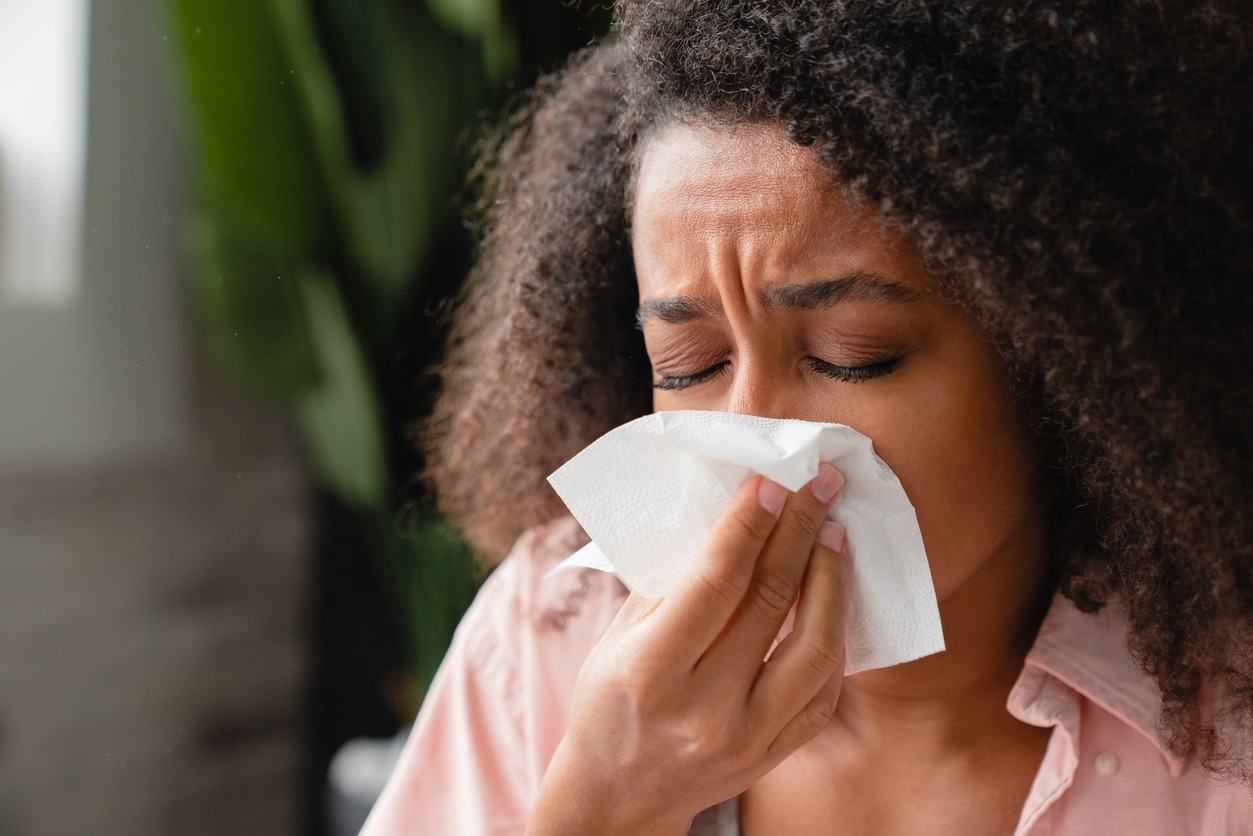Allergies are the body’s overreaction to a stimulus that would otherwise be considered harmless. Common environmental allergens may include pollen, mold and pet dander.
Allergic reactions often cause overlapping symptoms that impact the ears, nose and throat. Symptoms can range from itching and swelling, to runny eyes and nose, sneezing and coughing. More than 100 million people in the U.S. experience allergies each year, and they are the sixth leading cause of chronic illness.
Impact of Symptoms

Allergy symptoms can affect the ears, nose and throat individually, but the ear, nose, throat system is intertwined enough that sometimes symptoms affect multiple of these at once. Let’s take a look at how each becomes impacted by allergies.
- Nose: Allergy symptoms impacting the nose include a stuffy or runny nose. It can also include sneezing, congestion or itching. Allergic rhinitis, or hay fever, impacts the nose. Drainage from the congestion may also impact the throat, via postnasal drip.
- Throat: Postnasal drip, caused by congestion of the nose can result in a sore throat. This sensation can also feel like a tickle or an itch. Seasonal allergies also have the potential to cause an itch on the roof of the mouth near the throat. Allergy symptoms can also cause inflammation, narrowing the esophagus, leading to difficulty swallowing.
- Ears: The ears may be the last thing you think of when you consider how allergy symptoms impact your body. However, symptoms in the nose, eyes and throat can impact how the ears feel. Sinus buildup from a stuffy nose can cause ear pressure or earaches, due to Eustachian tube dysfunction. Congestion can also clog your ears, leading to difficulty hearing or even temporary hearing loss. In the event you experience temporary hearing loss, contact your doctor.
Several medications exist to treat allergy symptoms, both over the counter and prescription. Treatments may include nasal sprays, antihistamines, decongestants or other medications. An ear, nose and throat doctor can help navigate allergy testing or treatment plans. In cases of severe allergies, an ENT may recommend allergy immunotherapy, which is a series of shots designed to desensitize your immune system to allergens.
To learn more about allergy treatment options or about how allergies impact your ear, nose and throat, contact Ear, Nose & Throat Associates to schedule a consultation.